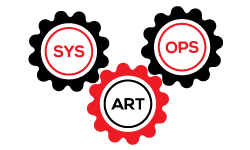Introduction
Incorporating FinOps into engineering roles allows engineers to turn cost constraints into benefits. FinOps creates financial insights that empower engineers to make informed decisions throughout the development lifecycle.
What is FinOps?
FinOps is an evolving cloud financial management discipline and cultural practice. It helps organizations achieve maximum business value by enabling collaboration between engineering, finance, and business teams to make data-driven spending decisions.
Financial Accountability
Engineers are now at the forefront of the value equation for their companies. With the widespread use of cloud, SaaS, and PaaS products, engineers are entrusted with the authority to commit the company to spending in the public cloud. Cloud budget issues should be addressed by both finance and engineering teams.
Usage Optimization & Rate Optimization
FinOps teams focus on both usage optimization (ensuring resources are only running when needed) and rate optimization (ensuring the lowest possible cost for necessary resources). Engineers play a pivotal role in usage optimization by architecting and building systems with cost as a primary consideration.
FinOps Principles
- Teams Need to Collaborate: All teams provide useful information and viewpoints.
- Everyone Takes Ownership for Their Cloud Usage: Engineers have the power to create resources in the cloud and must meet both technical and financial requirements.
- A Centralized Team Drives FinOps: This team handles commitments, rate negotiations, policy, strategy, automation, and scripting.
- Reports Should Be Accessible and Timely: The FinOps team provides information for decision-making.
- Decisions Are Driven by Business Value of the Cloud: Decisions must balance cost, features, speed, quality, technical merit, and overall value.
- Take Advantage of the Variable Cost Model of the Cloud: Use resources creatively and only when needed to maximize value.
Why Do FinOps as an Engineer?
FinOps enables cost efficiency, demonstrating cloud maturity and individual responsibility. Accurate awareness of cloud costs improves relationships with other teams and increases innovation. Cost efficiency allows for reinvestment in innovation, experimentation, and automation.
Cloud Journeys for Organizations
Traditional technology consumption involved complex business cases for hardware and software. The cloud model changes this dynamic, allowing engineers to spend money directly on technology. This shift requires new operating models for consuming cloud, such as centralized, shared platform, and fully distributed models.
DevOps & Cloud
DevOps and cloud have disrupted traditional procurement processes, allowing for faster technology delivery and more flexible IT services. FinOps is the new model for managing cloud costs, bringing financial accountability to the variable spend model of the cloud.
Creating a Culture of Accountability
FinOps fosters collaboration among product, finance, and business teams to make real-time decisions that increase business value. It also involves other teams affected by cloud cost and usage, such as architecture, IT asset management, IT security, operations, IT service management, procurement, and sustainability.
Optimization Levers
FinOps focuses on rate optimization (finding the best rates and discounts) and usage optimization (ensuring efficient use of resources). Engineers are responsible for implementing usage optimization opportunities identified by FinOps.
Conclusion
FinOps is an ongoing practice that requires collaboration and continuous improvement. Engineers play a crucial role in maximizing cloud value through cost-efficient engineering and data-driven decision-making. By partnering with FinOps, engineers can drive innovation and deliver business value.
